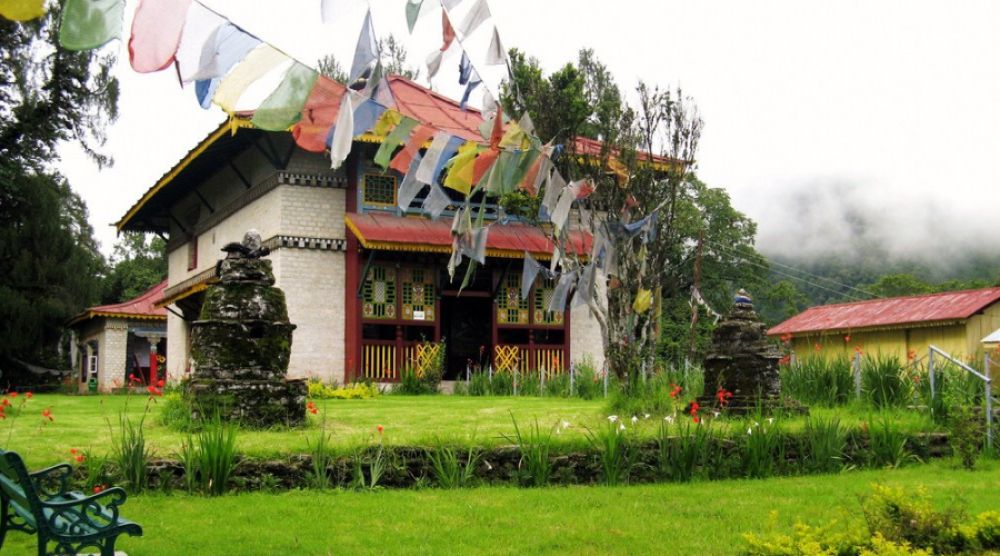

Sikkim, a small state nestled in the eastern Himalayas, is known for its biodiversity, majestic scenery, and rich cultural heritage. Yuksom is a historic town in West Sikkim, recognized for its breathtaking beauty and significant role in the state's history and tourism.
Yuksom means 'Meeting place of the Three Lamas' in Tibetan, as it is the site where, in 1642, three Tibetan monks consecrated the first Chogyal (king) of Sikkim, Phuntsog Namgyal. This historical event marked the beginning of the Namgyal dynasty in Sikkim.
Tourism in Yuksom saw its inception with trekkers and mountaineers, as it serves as the gateway to Mount Khangchendzonga, the world's third-highest peak, and the Khangchendzonga National Park. The base camp for the famous Goechala Trek is located in Yuksom, making it an essential hub for trekkers.
Aside from trekkers, Yuksom also started to attract cultural enthusiasts keen on exploring Sikkim's rich heritage. Tourists come to visit the Dubdi Monastery, one of the oldest in the state, and the Norbugang Chorten, a stone throne and stupa marking the founding place of Sikkim.
With the increasing global emphasis on sustainable travel, Yuksom has embraced ecotourism, being one of the first towns in India to ban plastic bags. The local community with the support of NGOs has worked towards preserving its pristine environment and traditional ways of life.
In recent years, homestays have become a popular form of accommodation in Yuksom, providing tourists with an authentic experience and the opportunity to immerse themselves in local culture. Meanwhile, initiatives like the Khangchendzonga Conservation Committee promote responsible tourism to ensure minimal impact on the region's ecosystem.
Modern Yuksom tourism thrives on balancing cultural heritage tours, spiritual journeys to ancient monasteries, adrenaline-fuelled treks, and initiatives that preserve the natural environment and the well-being of the local community.
The future of tourism in Yuksom aims to maintain a sustainable approach, keeping intact its charm and tranquility. As global travel evolves, Yuksom continues to adapt, ensuring it remains a paradise for hikers, cultural tourists, and nature enthusiasts from around the world.